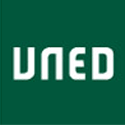Master Social Work - Máster en Trabajo Social
Imparte:
Bournemouth University-
Imparte:
-
Modalidad:Presencial en Dorset
-
Precio:All fees are quoted in pounds sterling and are per year.
There is a varied range of scholarships available.
For full-time study, for qualifications such as MA, MSc and LLM:
UK, CI and ROI students: £8,500-£11,500
International students: £17,000-£22,000 -
Comienzo:Septiembre 2026
-
Lugar:Fern Barrow, Poole,
Dorset (Bournemouth) BH12 5BB
Reino Unido -
Duración:2 Años
-
Idioma:El Master se imparte en Inglés
-
Titulación:Social Work MA
This Master’s degree is both an academic qualification and a professional qualification. As it is approved by Social Work England you’ll be eligible to apply for registration as a social worker on successful completion of the course.
A Bachelors Honours degree with 2:1 in any subject. Applicants with a 2:2 may be considered if they have strong relevant work experience. Please note that there are also non-academic entry requirements for this course, full details are in the entry requirements section of this page.
If English is not your first language you'll need IELTS (Academic) 7.0 with a minimum of 6.5 in each component of writing, speaking, listening and reading.
This practical degree blends a powerful combination of academic study with essential practical experience
Placements during the course mean you will gain lots of relevant experience operating in real-world settings and will develop strong working relationships with those already in the profession
Our cohorts are small and extremely well supported
Our staff team is research active across a wide range of topics relevant to current social work practice, and this informs the curriculum and the learning experience of students
Each student is allocated a Personal Tutor from the teaching team
People with lived experience are actively and meaningfully involved in all aspects of the course, through the Public Involvement in Education and Research (PIER) partnership. The involvement of service users and carers was developed in social work and is now a feature across the faculty.
Year 1
Law in Social Work Practice: You will develop an understanding of law and relevant social policy and, through your knowledge and harnessing of relevant skills, be able to use knowledge of law and social policy competently and creatively.
Applying Social Work Models and Methods in Social Work: The unit will help you develop an understanding of the complex and multi-layered nature of social work with a strong focus on the practical applications.
Developing Relationship Skills as a Social Work Practitioner: This unit aims to facilitate the development of personal and interpersonal communication skills as well as exploring and understanding theory that will aid the application of these skills in professional practice.
Readiness for Direct Practice in Social Work: This unit will prepare and assess your readiness for direct practice through a range of practical guidance, support and knowledge to develop your capabilities against the Professional Capabilities Framework and the Social Work England Professional Standards.
Human Development: Applying Theory to Practice: You will develop an understanding of human growth, development and behaviour across the lifespan, and different sociological and psychological explanations for this.
Professional Practice with Children and Families: This Unit will be underpinned by research and evidence based judgements and students will develop their understanding and competence in assessment and intervention with children and their families. Students will be expected to examine their own beliefs and values in relation to protection work and to build on their previous learning in both theory and practice.
Professional Practice with Adults: This unit aims to prepare social work students for practice with adults in a variety of settings; making reference to contemporary social work practice issues. This includes approaches to intervention, the legislative framework which mandates practice, professional accountability, applying critical thinking, working with risk and complexity, and the importance of evidence-informed practice.
MA Social Work First Substantive Placement (Parts A and B): These practice based units provide essential practice experiences that you require in working toward meeting the regulations of the professional body.
Year 2
Core units
MA Social Work Final Substantive Placement (Parts A and B) – These practice based units provide essential practice experiences that you require in working toward meeting the regulations of the professional body including the opportunity to undertake statutory tasks and legal interventions.
Reflection on Professional Learning: This unit enables you to consolidate and evidence your learning from the 30 skills days undertaken over the duration of the programme.
Optional units:
Dissertation: The dissertation draws on conceptual, theoretical and practical knowledge, developed in other units of the programme. It provides the opportunity to consider existing knowledge in a way that is intellectually critical, and has the potential to expand or redefine the application of existing knowledge and/ or contributes to new approaches to practice.
or
Service Improvement Project: The aim of this unit is to enable students to develop the skills of working in small inter-professional teams to design and develop a service improvement or product to enhance the experiences of people who use services and / or their carers.
and
Critical Literature Review: You will undertake an intellectually challenging and in-depth literature review exploring a topic relevant to contemporary social work practice as grounded in evidenced-based practice.
Career progression may lead to you becoming a:
Social Worker
Community Care Officer
Team Leader
Service Manager
Academic Lecturer.
Should you wish to work as a social worker outside the UK, the Social Work Master’s qualification is recognised in many countries.









